Training on Rabies Outbreak Management for FETP Students: Enhancing Field Surveillance Capacity
In an effort to enhance the surveillance capacity of FETP students at Udayana University in managing rabies cases, Health Security Partner and FETP Indonesia provided an opportunity for four FETP students from Udayana University—Gst Ngr Bagus Sindunatha, Ni Wy Ari Suantari, Happy Kusuma Mulya, and I Wayan Darsana—to participate in a training program in Nusa Tenggara Barat on managing rabies outbreaks.
The training took place from July 31st, 2024, to August 3rd, 2024. During this event, the students were closely mentored by Catherine and Julie from the CDC Rabies Epidemiology team, who provided presentations on the planned activities and upcoming tasks. The training included an introduction to the "WVS APP" (Worldwide Veterinary Service app), which is used in rabies surveillance activities. The students had hands-on training in conducting field surveys and entering data into the WVS app when encountering dogs inside homes or wandering along the streets. This experience allowed the students to develop their field competency in real-time surveillance, which is a crucial aspect of their training.
On the following day, the students received material on integrated bite case management, and a demonstration of using the "React App" was provided for post-bite cases. The students also had practical experience using the React App for field surveys and documenting the vaccination status of dogs with the WVS app. This hands-on training ensured that the students gained familiarity with modern technologies for rabies surveillance and case management, aligning with the program’s focus on technological application in public health.
This training proved extremely beneficial for the FETP students from Udayana University, as it was conducted by WVS trainers and provided them with practical, real-world experience. The opportunity to interact with local health department staff, community health center workers, and stakeholders in villages and hamlets in Nusa Tenggara Timur was a particularly valuable aspect of the training. This exposure gave the students the chance to develop their cultural sensitivity by interacting with communities from different cultural backgrounds, a key skill in public health work, especially in Indonesia's diverse regions. Through this, the students enhanced their ability to engage with local stakeholders, including health authorities and community members, which is an essential part of the program’s emphasis on field experience and stakeholder engagement.
Additionally, the training provided new ideas for potential implementation in Bali, particularly regarding rabies surveillance practices, which are also a challenge in the region. The students were able to understand how to implement similar surveillance strategies in Bali’s local context. This kind of cross-regional learning is a vital component in preparing students to address public health challenges that span diverse settings. By learning and applying new technologies such as the WVS and React apps, students are better prepared to incorporate innovative solutions into their future public health surveillance efforts.
The FETP Udayana commit to producing well-trained, culturally aware, and technically skilled public health professionals who are equipped to address the complex health challenges of the future.
The training took place from July 31st, 2024, to August 3rd, 2024. During this event, the students were closely mentored by Catherine and Julie from the CDC Rabies Epidemiology team, who provided presentations on the planned activities and upcoming tasks. The training included an introduction to the "WVS APP" (Worldwide Veterinary Service app), which is used in rabies surveillance activities. The students had hands-on training in conducting field surveys and entering data into the WVS app when encountering dogs inside homes or wandering along the streets. This experience allowed the students to develop their field competency in real-time surveillance, which is a crucial aspect of their training.
On the following day, the students received material on integrated bite case management, and a demonstration of using the "React App" was provided for post-bite cases. The students also had practical experience using the React App for field surveys and documenting the vaccination status of dogs with the WVS app. This hands-on training ensured that the students gained familiarity with modern technologies for rabies surveillance and case management, aligning with the program’s focus on technological application in public health.
This training proved extremely beneficial for the FETP students from Udayana University, as it was conducted by WVS trainers and provided them with practical, real-world experience. The opportunity to interact with local health department staff, community health center workers, and stakeholders in villages and hamlets in Nusa Tenggara Timur was a particularly valuable aspect of the training. This exposure gave the students the chance to develop their cultural sensitivity by interacting with communities from different cultural backgrounds, a key skill in public health work, especially in Indonesia's diverse regions. Through this, the students enhanced their ability to engage with local stakeholders, including health authorities and community members, which is an essential part of the program’s emphasis on field experience and stakeholder engagement.
Additionally, the training provided new ideas for potential implementation in Bali, particularly regarding rabies surveillance practices, which are also a challenge in the region. The students were able to understand how to implement similar surveillance strategies in Bali’s local context. This kind of cross-regional learning is a vital component in preparing students to address public health challenges that span diverse settings. By learning and applying new technologies such as the WVS and React apps, students are better prepared to incorporate innovative solutions into their future public health surveillance efforts.
The FETP Udayana commit to producing well-trained, culturally aware, and technically skilled public health professionals who are equipped to address the complex health challenges of the future.
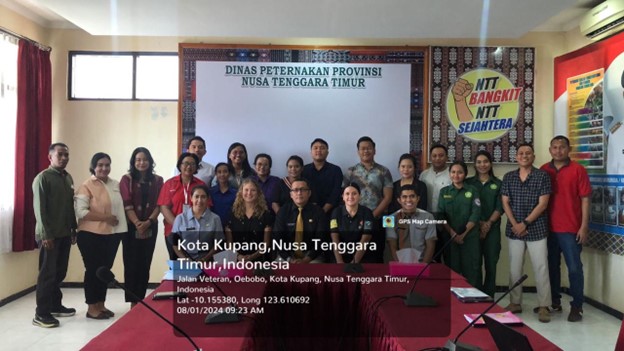
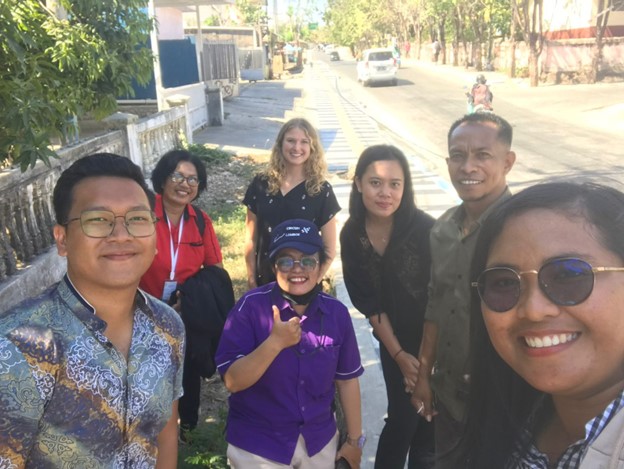
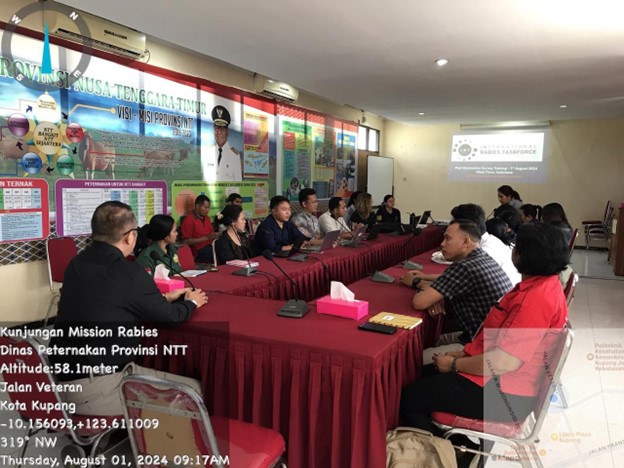
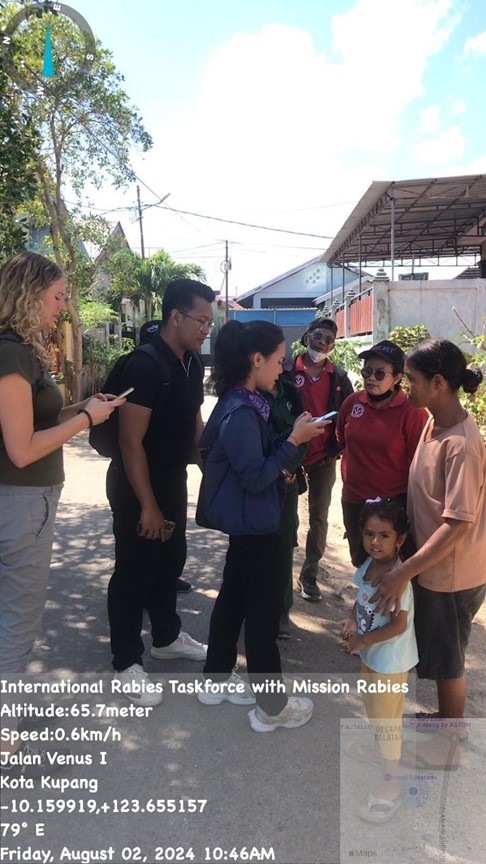
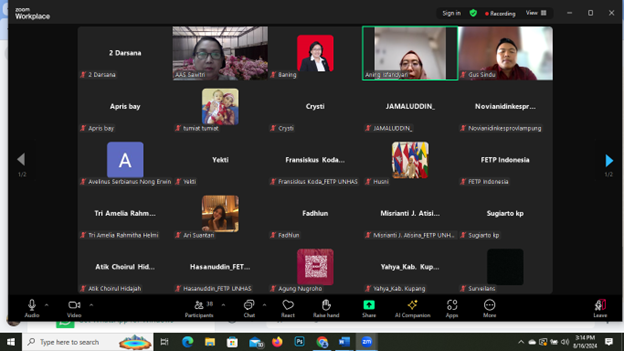
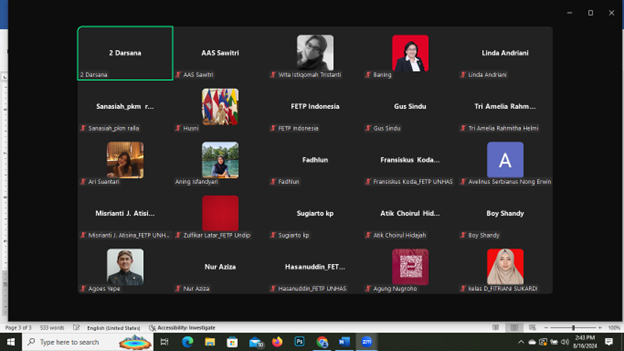

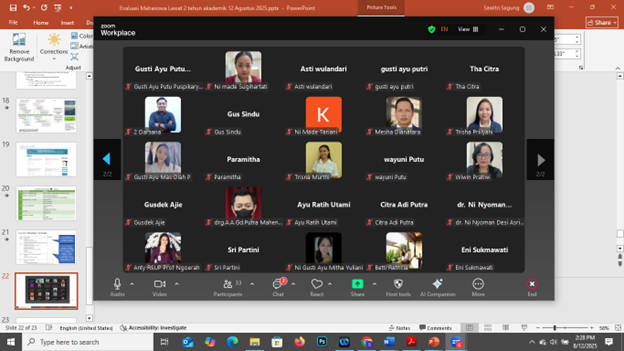

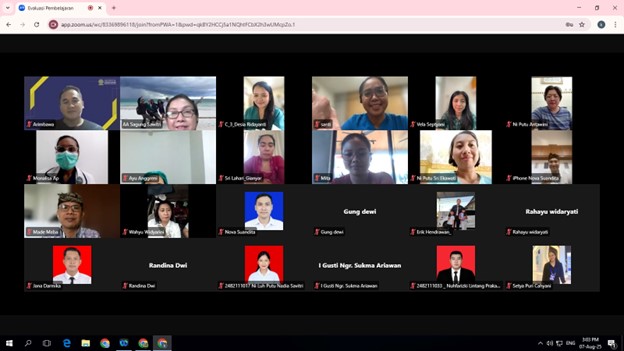
MEDICAL FACULTY